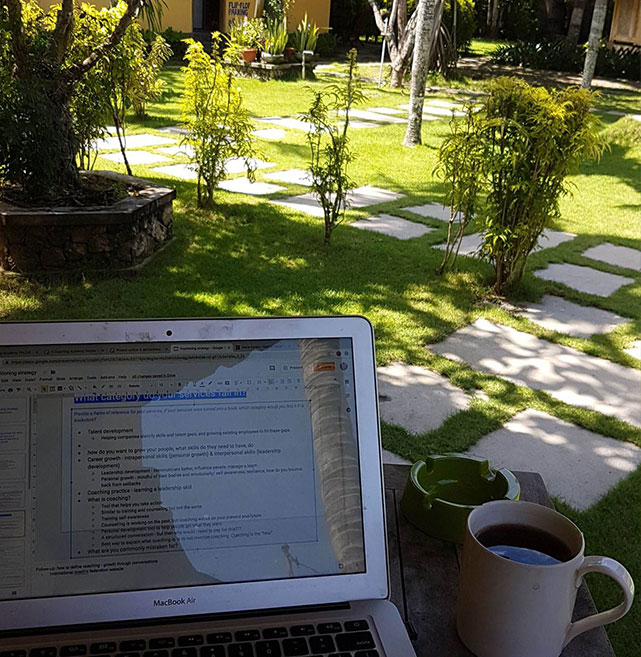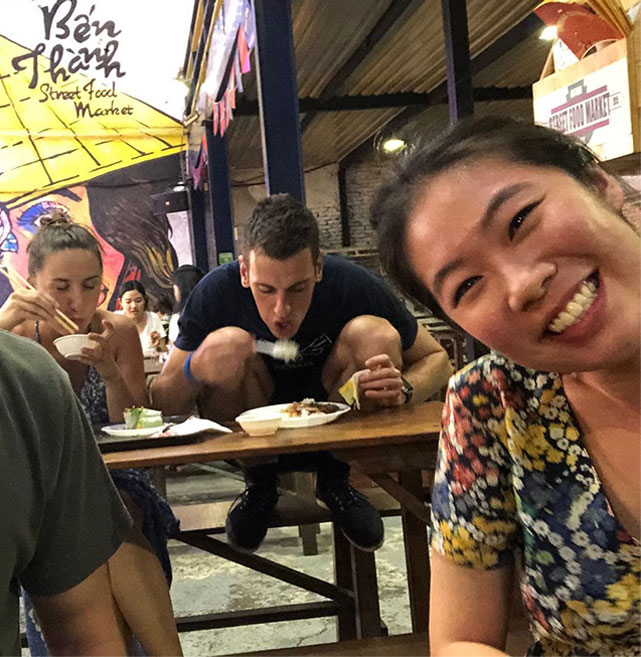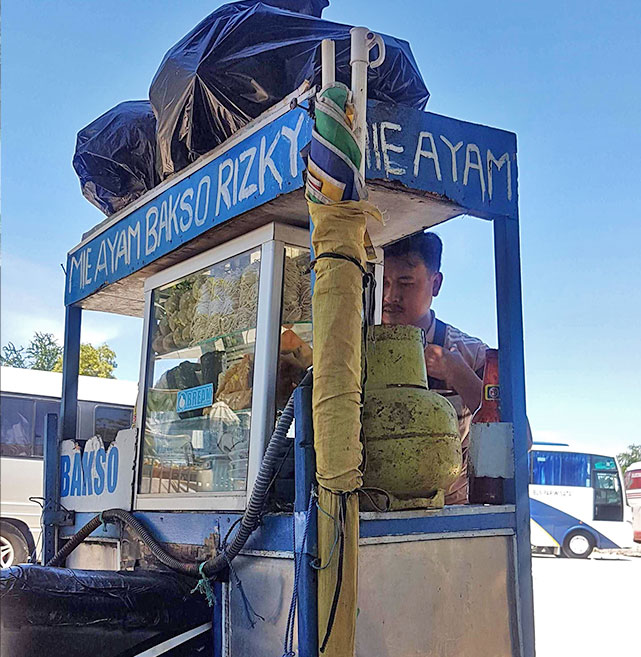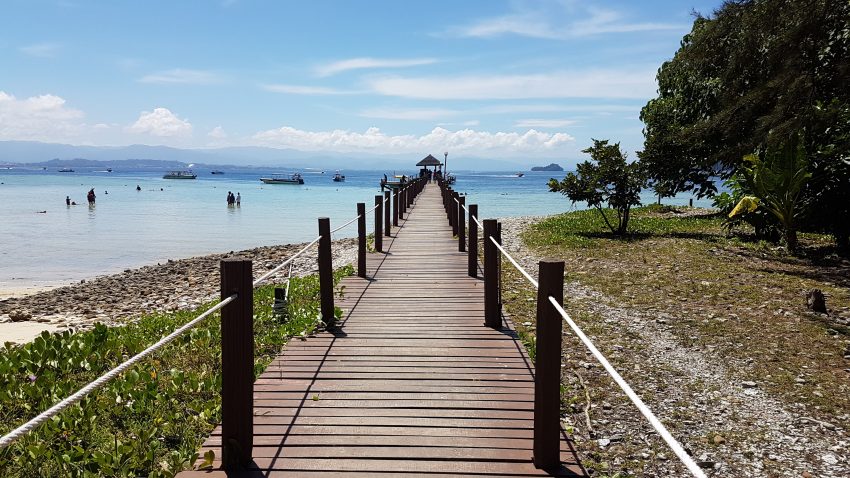
Digital nomads sit in an in-between space where they spend more time in a destination compared to the average tourist, but obviously spend significantly less time than people who have relocated or people who were born and raised in those destinations. You know… locals.
When travel was still allowed, twice a year I would visit my previous company’s offices in Switzerland. When I wasn’t there, I was working and slowly travelling across Southeast Asia, Europe, America, and Mexico. No matter how long I stayed – two weeks, two months, or two years – I was constantly reminded that I was not, and would never be, a local.
As a middle-class, Chinese-Malaysian woman who had the opportunity to study abroad, being regarded as an outsider in cities I was fond of was nothing new. My skin colour, accent, and mother tongue often gave me away. I got used to slight remarks from waiters or cashiers tired of dealing with excitable Asian tourists. I also got used to the occasional, “Go back to China!” from across the street or, “Ching chong ting tong ling long” on the train. It’s through this lens that I travelled the world, conscious of what I look like and what people around me believe to be true of me.
However, this is not always the case, especially when it comes to digital nomads from the West visiting Southeast Asia.
Most digital nomads who visit the region are white, cisgender, and straight, hailing from developed countries in the West with far better infrastructure and social services than mine, possessing passports with more relaxed visa restrictions, and often earning in euros, US dollars, or British pounds. They choose to travel for a multitude of reasons – to see the world, to learn about other cultures, to escape the 9-to-5, to live cheaply while growing their tech start-up, and of course, to ‘find themselves’.
When they visit, they are welcomed with open arms and big smiles, mostly because the cultures on this side of the world continues to idolise western-ness and whiteness. But this means that locals are unlikely to call them out for behaviour we deem offensive or rude. Protected by their ‘Digital Nomad of the West’ shield, our silence and hospitable smiles are sometimes mistaken for acceptance.
 Many digital nomads who visit claim that popular destinations like Kuala Lumpur, Bangkok, and Bali are cheap. Cheap for whom? When you’re earning in a local currency and paying local taxes, car loans, rent, and insurance, living in these cities isn’t exactly cheap. Take Kuala Lumpur, for example – the average rent for a one-bedroom apartment, somewhere between 500 and 700 square feet is RM2,000, while the average income earned by an individual in their late 20s to early 30s is between RM5,000 to RM8,000. If you put it together, you’ve guessed right – I am writing this from my childhood home, where I still live with my parents.
Many digital nomads who visit claim that popular destinations like Kuala Lumpur, Bangkok, and Bali are cheap. Cheap for whom? When you’re earning in a local currency and paying local taxes, car loans, rent, and insurance, living in these cities isn’t exactly cheap. Take Kuala Lumpur, for example – the average rent for a one-bedroom apartment, somewhere between 500 and 700 square feet is RM2,000, while the average income earned by an individual in their late 20s to early 30s is between RM5,000 to RM8,000. If you put it together, you’ve guessed right – I am writing this from my childhood home, where I still live with my parents.
Just like how birds of the same feather flock together, these digital nomads tend to attract and stick to one another. They also work remotely, with no colleagues from the destination they’re visiting. All this, plus language barriers, severely limit opportunities for meaningful interactions with locals. You’re not sitting in meetings discussing the marketing strategy of a local start-up, you’re not visiting the homes of locals and dining with their parents. I find this incredibly dangerous. Without contradicting points of views, digital nomads continue to build a great echo chamber filled with unchecked privilege. Ironic, isn’t it?
And here lies the harm that digital nomads bring to locals – the false belief that you know the destination and its people so well that you begin to speak with authority you do not possess, of a destination and people you are not as intimately acquainted with.
It might be a tough pill to swallow if your social media followers are all Westerners too, but know that you do not and will not understand the perspective of a local. My reality of Southeast Asia and your reality of Southeast Asia will never be the same.
It’s your skin colour, your accent, and the currency in your wallet that affords you the privilege of living outside local customs while enjoying the local scene. It’s your privilege that tricks you into thinking you know what it’s like to live like a local.
So, what can you actually do when visiting Southeast Asia?

Firstly, do not come here just because it’s cheap. If you’re only adopting this lifestyle to escape higher costs of living from whence you came, hoping to maintain the same millennial lifestyle while haggling down a price for a tuk-tuk ride that’s already less than a dollar, you really are no better than the colonisers before you. You are, in essence, exploiting us for our cheap labour and these actions continue to keep the locals poor. Instead, ask yourself how much you would pay for this exact experience, lodging, or meal if this was in your home country?
While we’re on the topic of money, be mindful of where you spend your money. While I do believe that tourism is a great way to stimulate the local economy, it’s also a reason for gentrification in many cities like Barcelona and Lisbon, for example. Instead, I urge you to look for ways to give back to the average person on the street. Shop at a fruit stall or wet market instead of another chain supermarket, watch a play that examines life here, pick up a book written by a local author, give that barista you like a larger tip.
Next, break out of the echo chamber. No, don’t expect me to tell you everything about my country. I want you to be curious enough to step out into the unknown and actually give a damn about the place you’re living in, even if it’s just for two weeks. Learn about our political landscape, find out what people are really concerned about, and what we love most about our countries, flaws and all.
You also need to understand the immense privilege your western-ness and whiteness affords you. You don’t need to exploit loopholes in our immigration system just because your passport allows you to. Do not tell me, “It’s not my fault I’m privileged.” Understand that life is unfair, and your role when you’re here is to listen, observe, and ask. Have these conversations offline and consider your position of privilege before posting stupid remarks online.
Side note: If you must rant about Malaysia, please for the love of God post it for ‘Close Friends’ only. Malaysia is, unfortunately, top of the list for cyberbullying; especially on Twitter.
In Malay, we have a saying, “Di mana bumi dipijak, di situ langit dijunjung.” It translates to “Wherever on earth you step on, it’s there you hold up the sky.” What it really means is: Wherever you find yourself, those are the customs and traditions you must adopt. In other words, when in Rome…

Imagine you’re visiting a friend’s home – you sit where they indicate you should sit, you greet other household members, you take off your shoes. You don’t complain on Instagram that this house has no peanut butter (when it does), tweet out instructions to break into your friend’s home, and overstay your welcome. You don’t exoticise or generalise the culture and customs around you. You’re polite and kind, even if you don’t agree with everything you see.
Finally, if you belong to a digital nomad community or regularly engage people in that sphere, it’s time to decolonise that space. Bring diversity into your imagery and representation in your rhetoric. You and I, as global citizens, have a role to play to ensure that this incredibly wild opportunity to see the world doesn’t perpetuate false narratives or water down the rich culture and variety of Southeast Asia.
Follow Zafigo on Instagram, Facebook, and Twitter. Sign up to our bi-weekly newsletter and get your dose of travel tales, tips, updates, and inspiration to fuel your next adventure!


